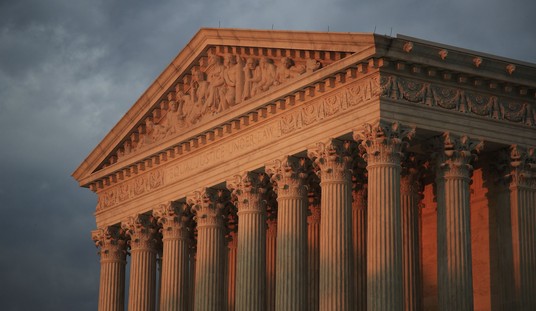When Chuck Schumer first took federal office as a member of the House of Representatives in January 1981, the Monthly Statement of the Public Debt for December 1980 reported that the federal debt at the end of that year was $930.21 billion.
As of Oct. 10 of this year, according to the U.S. Treasury, it was $37.885 trillion.
During Schumer's time in Congress -- which has constitutional control over federal borrowing and spending -- the federal debt has increased 40-fold.
During President Joe Biden's term -- when Schumer served as Senate majority leader -- the federal debt, as this column has noted before, increased at an average rate of more than $2 trillion per year.
But when President Donald Trump's One Big Beautiful Bill came up before the Senate earlier this year, Schumer suddenly became a deficit hawk. "This is the biggest debt increase in U.S. history," he claimed.
"When interest rates go up, which the Republican bill will do because it makes the deficit even bigger, it will become more expensive for the working family to buy a home, a car, send kids to college, run a business -- everything," Schumer warned in a speech on the Senate floor.
When the Republican-controlled House Budget Committee issued a report on its fiscal year 2025 budget proposal on June 27, 2024, it made a candid observation about the growing federal debt.
"In a letter to Henry Lee in 1790, James Madison said 'A public debt is a public curse,'" said this report. "Today, the Nation's unsustainable debt and out-of-control deficit spending embodies this curse and poses the greatest long-term threat to the country's future.
"Both parties have contributed to creating not a Republican problem or Democrat problem, but an American problem," it said.
Recommended
"The nonpartisan Congressional Budget Office (CBO) projects that over the next decade $20 trillion will be added to the national debt, and interest payments will more than double and become the third largest expenditure item in the Federal Government," it said.
"If leaders of this country do not act on the mathematical reality the Nation faces, one of two scenarios could emerge," it said. "The country could see a slow and painful economic demise from sustained stagnation, or a swift and catastrophic sovereign debt crisis. Both scenarios would imperil the Nation's future, making this the first generation of leaders to fail to leave the country better than they found it for their children.
"The fiscal state of the Nation is unsustainable, but not unfixable," it concluded.
So, what happened to federal spending in fiscal 2025?
In its Monthly Budget Review released last week, the Congressional Budget Office reported that in fiscal 2025, which ended in September, the net interest on the public debt exceeded $1 trillion for the first time in this nation's history.
Even though total federal tax revenues increased by $308 billion from fiscal 2024 -- climbing from $4.918 trillion to $5.226 trillion -- federal spending rose nearly as much, growing from $6.735 trillion to $7.035 trillion. The result was a $1.809-trillion deficit.
The $1.029 trillion that the government spent on net interest on the debt was almost nine times as much as the $115 billion spent on the Department of Homeland Security.
On Sept. 19, 11 days before the end of fiscal 2025, the House voted 217-212 for a short-term continuing resolution to keep the government funded until Nov. 21. Only one Democrat voted for this bill.
The bill has been blocked in the Senate, where 45 Democrats led by Senate Minority Leader Schumer have repeatedly voted against bringing it to a final vote, which would require 60 votes.
Eight days into the resulting government shutdown, Schumer gave an interview to Punchbowl News. "Every day gets better for us," he said about the shutdown.
"It's because we've thought about this long in advance and we knew that health care would be the focal point on Sept. 30 and we prepared for it," Schumer said.
He was making an issue of the fact that the short-term continuing resolution passed by the House does not include an extension of "enhanced" premium tax credits for purchasing health insurance plans in the Obamacare marketplace. These "enhanced" credits -- which, as explained by the Congressional Research Service, "expanded eligibility for and the amount of" the Obamacare premium tax credit -- were enacted under President Biden. Under the Inflation Reduction Act of 2022, which Schumer voted for and Biden signed into law, these "enhanced" credits are set to expire at the end of this year.
As calculated by the CBO, the CRS report says, a permanent extension of this enhanced credit "would add approximately $350 billion to the budget deficit" over the next 10 years.
According to the CBO's numbers, 25.7% ($1.809 trillion) of the $7.035 trillion the federal government spent in fiscal 2025 was borrowed money.
At the White House on Tuesday, Trump told reporters his administration now intended to permanently shut parts of the government. "So, we are closing up programs that are Democrat programs that we wanted to close up or that we never wanted to happen and now we're closing them up and we are not going to let them come back," Trump said.
"We are going to have a list of them on Friday," he said.
This is the right approach to the debt problem. Now, America needs a Congress that will embrace it.
To find out more about Terence P. Jeffrey and read features by other Creators writers and cartoonists, visit the Creators webpage at www.creators.com. COPYRIGHT 2025 CREATORS.COM
Editor’s Note: The Schumer Shutdown is here. Rather than put the American people first, Chuck Schumer and the radical Democrats forced a government shutdown for healthcare for illegals. They own this.
Help us continue to report the truth about the Schumer Shutdown. Use promo code POTUS47 to get 74% off your VIP membership.
























Join the conversation as a VIP Member